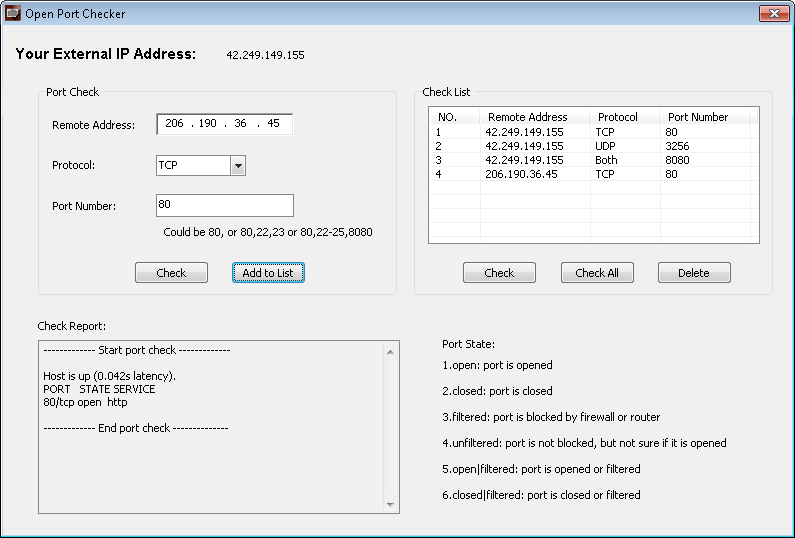
These are LDAP, Remote Procedure Calls (RPC), e-mail protocols SMTP/POP3/IMAP4, SNMP, FTP/ TFTP, NetBIOS Name Service, L2TP, etc. PortQry has built-in support for some network services. Portqry.exe -local Advanced Network Services Open Ports Status in PortQry You can get information about opened ports and active TCP/UDP connections on the local computer: Portqry -wport 3389 -wt 600 –l LogFile.txt -y -v Portqry -n 10.0.25.6 -p tcp -r 20:500 -l scan_port_log.txtįor example, the following command will monitor the response of the specified local port within 10 minutes (for example, RDP port 3389), and if its status changes, it will notify the administrator about this (a detailed log will be available in the LogFile.txt). You can save the open ports scan result to a text file: The next command scans the ranges of the well-known TCP/IP port numbers and returns the list of ports that accept the connections (works as TCP Port Scanner): Using -o attribute, you can specify the sequence of ports to check their availability: In our example, the DNS server is available from the client both over TCP and UDP ports. By default, TCP ports are polled 3 times, and UDP is one. e., this port is not listening on the target system, or the access to it is restricted by a firewall or some system settings. Filtered – means that PortQry hasn’t received any response from the specified port or the response has been filtered.


The PortQry received an ICMP response “Destination Unreachable – Port Unreachable” when checking the UDP port, or TCP packet with the Reset flag

Not Listening – shows there isn’t any process (service) on the target system that accepts connections on the specified port.Listening – means that the port is opened (accepts connections), a response has been received from it.


 0 kommentar(er)
0 kommentar(er)
